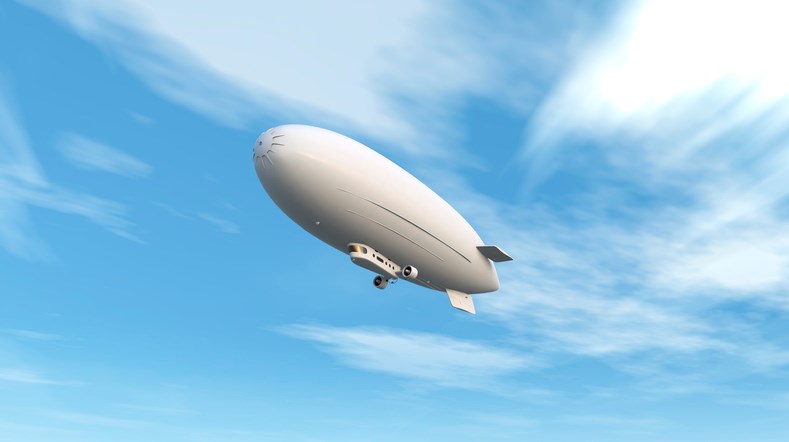A local cold-weather testing booster and a long-time Manitoba advocate for airships believe that Thompson could serve as a base for measuring how lighter-then-air vehicles cope with extreme winter weather.
Barry Prentice of the University of Manitoba, who has been advocating for research into the use of airships as cargo delivery vehicles for the past two decades, hosted a Zoom presentation last week that attracted attendees such as federal government officials, people involved in Thompson economic development and an executive from one of a handful of airship companies that have said they are close to having vehicles ready for flight testing, the Winnipeg Free Press reported July 30.
“Without a cold-weather testing facility there is no future for an airship operating in the North,” Prentice told the Free Press. “It is not something that would be nice to have, it is something that the industry will need to have.”
In a region like Northern Manitoba, where numerous communities do not have year-round road access, airships capable to hauling 50 to 100 tonnes of cargo could provide a means to get items too large for planes into remote communities outside of the brief, and shrinking, winter road season, and provide the service more economically than airlines or even trucking companies.
Prentice says Thompson could be a good site for testing airships because there is already an established cold-weather testing industry and plenty of space to do such testing away from prying eyes.
“We definitely see some opportunities for Manitoba,” Volker Beckmann, a longtime advocate for Thompson’s winter-weather testing industry and the author of a white paper called “Creating an Airship Industry in Manitoba,” told the Free Press.
An agency called SubZeroNorth was recently launched to help revitalize and grow Thompson’s cold-weather testing industry, which was affected by the COVID-19 pandemic and also faces stiff competition from other communities with similar climates.
Beckmann says there have been talks with Vale Manitoba Operations about the idea of using abandoned open-pit mines in the area as airship testing grounds, though no agreements have been reached.
Prentice told the Free Press that Manitoba provincial government officials have never offered anything more than general conceptual support of airships in the 20 years that he has been floating the idea of using lighter-than-air vehicles to address transportation and logistics challenges in the province’s north. However, Transport Canada has an active airships file and an official from the federal agency took part in Prentice's July Zoom presentation.
“Transport Canada is currently monitoring airship technology development … and is also involved in regulatory discussions between the EASA (European Union Aviation safety Agency) and the FAA (the U.S. Federal Aviation Administration),” said Daniel Hebert, Transport Canada’s principal research and development scientist and engineer.
Beckmann hopes to have a Manitoba contingent attend Prentice’s Aviation Innovations Airships Conference in Toronto this October.



